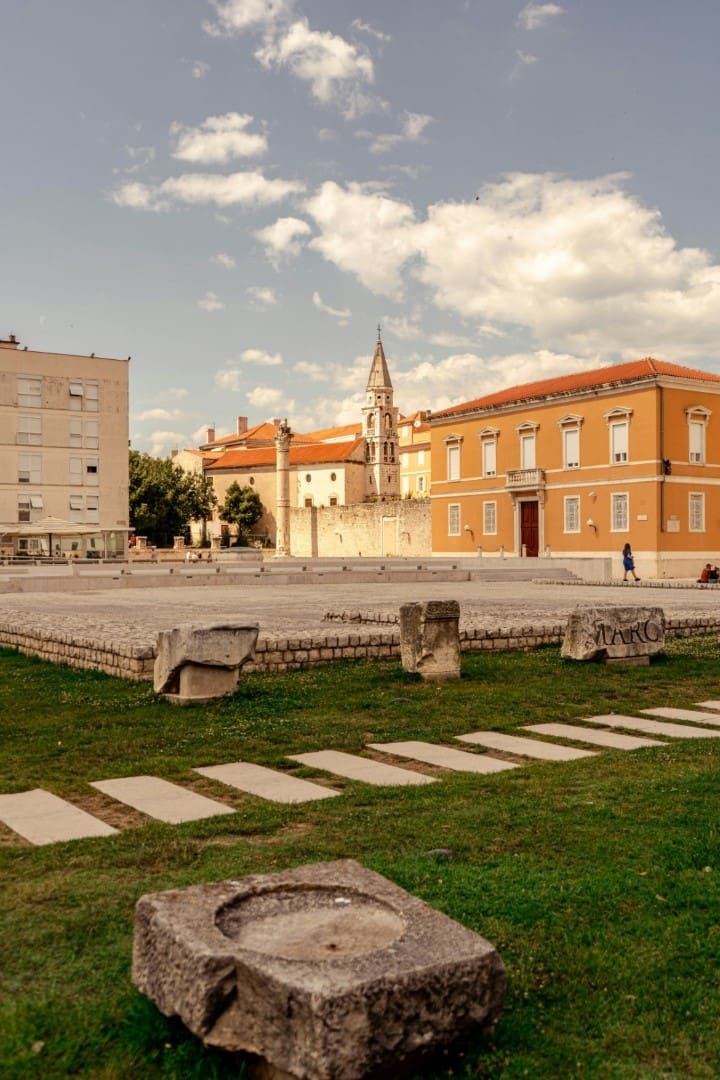Thinking about buying a property in Croatia? Curious about the taxes and how they might impact your investment?
In 2025, Croatia will introduce a new property tax law. To give you all the important information, we spoke to Branimir Zubčić, a lawyer specialised in property low.
We talked about all the significant issues and topics related to property taxes and the new law.
Read on and stay informed on this vital subject!
What are the basic property taxes in Croatia?
Branimir Zubčić: The primary tax associated with property purchases in Croatia is the property transfer tax, mandated by the Real Estate Transfer Tax Act.
This tax is 3% of the property’s market value when the tax obligation arises. There are conditions under which a property buyer can be exempt from paying this tax, which we will explain later.
Besides the real estate transfer tax, a 25% value added tax (VAT) may apply. A buyer who pays VAT on a purchased property is exempt from the 3% real estate transfer tax, and vice versa, to prevent double taxation.
The 25% VAT applies to:
- The delivery of buildings (or parts of buildings) that have never been occupied or used, including the land they occupy.
- The delivery of a building or part of a building (including the land) where less than two years have passed since first occupancy.
- The delivery of construction land.
VAT also applies to renovated buildings or parts and the land on which they are located if renovation costs within the two years before delivery exceed 50% of the selling price.
Are there any monthly or yearly property taxes in Croatia?

In some countries, property owners and landowners pay annual taxes. We asked Branimir Zubčić to clarify whether Croatia has any annual property or land taxes after purchase.
Branimir Zubčić: Currently, in 2024, neither Croatian citizens nor foreigners are generally required to pay any monthly or annual property taxes on purchased properties (e.g., apartments, houses, or land).
The only expenses are typical utilities, such as water, electricity, and communal services.
However, an exception applies to holiday homes, which are subject to a tax under the local tax act.
This act defines holiday homes as buildings (or parts) used seasonally or occasionally.
Tax for holiday homes ranges from 0.60 to 5.00 euros per square meter of usable area, with the rate set by local government councils.
The amount payable depends on the municipality or city where the property is located.
What changes does the new property tax law in Croatia brings?

Branimir Zubčić: It’s essential to note that, as of January 1, 2025, significant changes will take effect under the Amendments to the Local Tax Act.
The new law broadens the definition of taxable property.
This definition will include any residential building or part of a residential-commercial building, apartment, or any other self-contained residential space.
This excludes buildings used exclusively for storing agricultural machinery and equipment or properties designated for production or non-production purposes, as defined by the utility fee decision.
Currently, the Local Tax Act allows local governments to decide whether or not to levy a holiday home tax.
Under the new amendments, local governments will be required to implement property taxes.
Both domestic and foreign individuals and companies owning property on March 31 of the tax year will be liable for this tax.
Revenue will be distributed, with 80% going to local governments and 20% to the national treasury.
For newly built properties, the tax obligation begins:
- On the date when the use permit becomes final (when no further appeals are possible), obligating the owner to pay for that year.
- If the owner begins using the property without a final use permit, the tax obligation starts from the first day of use.
The new property tax will be 0.60 to 8.00 euros per square meter annually, compared to the current holiday home tax of up to 5 euros per square meter.
Exemptions under the new law include properties:
- Used as permanent residences.
- Leased for permanent residence under a rental contract.
- Used for public purposes or institutional housing.
- Listed as assets for sale in company accounts, if listed within six months before March 31 of the tax year.
- Acquired to settle unpaid debts, if acquired within six months before March 31 of the tax year.
- Uninhabitable due to declared natural disasters.
- Otherwise deemed unsuitable for housing.
- Owned by the Republic of Croatia.
- Owned by local governments, used only within their jurisdiction.
Socially vulnerable citizens may qualify for tax exemption, subject to conditions set by the local government’s representative body.
Are there tax reliefs or exemptions for foreign buyers?
Branimir Zubčić: Foreign buyers do not have any tax relief or exemptions. Croatian and foreign nationals are equal under the law.
What about capital gains tax on property sales?

What taxes apply if you sell, exchange, or gift a property? Are capital gains on property sales taxable?
Branimir Zubčić: This concerns income from property transfers, governed by the Income Tax Act, including sales, exchanges, and other transfers.
Taxable income is the difference between the property’s market value (or transferred asset) and its purchase price (adjusted for inflation). Transfer costs are deductible.
Capital gains tax does not apply if:
- The property served as the main residence of the owner or their immediate family.
- The property or asset is transferred after two years from acquisition.
Capital gains tax applies if:
- More than 3 properties or assets of the same type are transferred within five years.
- A multi-unit building, business premises, construction site, or multiple plots are transferred.
Income from the disposal of real estate and property rights is not taxed in the following cases:
- If the disposal is conducted between spouses, direct relatives, and other close family members
- If the disposal is conducted between divorced spouses
- If the disposal is directly related to divorce or inheritance of real estate and property rights.
How are rental income taxes calculated?

What taxes do you need to pay if you rent out your property long-term rather than for tourism?
Branimir Zubčić: Rental income tax is governed by the Income Tax Act, at a rate of 12%, paid monthly.
After signing a rental contract, landlords must submit it to the tax authority within 8 days. If the contract is notarized, the notary submits it on the landlord’s behalf.
For rental income, a 30% expense deduction is applied, except for tourism rentals, which have different rules and rates.
For example, if Ivan Ivić rents an apartment in Zadar for 1,000 euros monthly, his taxable income would be 700 euros after a 30% deduction. With a 12% tax rate, he pays 84 euros monthly.
The upcoming Income Tax Act 2025 introduces a new exemption: rental income between close family members will no longer be taxable.
Are there taxes on gifted properties?

Certain conditions allow exemption from the 3% Real Estate Transfer Tax on gifted properties.
Tax-exempt scenarios include:
- Spouses, direct descendants, and ascendants (in the direct line), as well as adoptees and adoptive parents in such a relationship with the deceased or donor.
- Legal entities and individuals to whom the Republic of Croatia or local/regional self-government units gift property without compensation.
- Former spouses when settling their property relations.
The direct line includes individuals who descend from one another, i.e., ancestors and descendants.
For example, when a parent gifts property to their child, or a grandparent to their grandchild, and vice versa.
The same applies to inheritance.
For example, if Ivo Ivić inherits a house from his great-grandfather, he will not be obligated to pay the real estate transfer tax.
However, if a brother gifts property to his sister, this transfer is subject to the real estate transfer tax, as it is for inheritance. Technically, a brother and sister are in the collateral line, not the direct line like a great-grandparent and great-grandchild.
How can tax policy impact a buyer’s long-term investment?
Branimir Zubčić: Tax policy should significantly impact long-term investments.
In Croatia, the property market is very attractive to foreign investors, especially EU nationals. Tax policy has historically had little impact on investments and is unlikely to affect them shortly.
The property market is a significant revenue source and economic driver for Croatia. With favorable geographic conditions, Croatia remains competitive among neighboring countries. Real estate investment here has become popular due to a stable, growing market that requires little expertise or substantial capital.
Accordingly, tax policy changes are not expected to affect investment trends.
Finally, we hope that you found information in this interview useful. We also thank Branimir Zubčić for sharing his expertise on property taxes in Croatia. If you need advice or a lawyer in the field of property law, contact his office in Zadar at ured@gn.hr.
Also, if you are thinking about buying a property in Croatia, learn more about real estate investment in our wonderful country on this blog. Or contact us, we will happily help you find your dream home!
Photo: Pexels – Nataliya Vaitkevich, Ivica Džambo, RDNE Stock project, Pixabay, Ron Lach, Jakub Zerdzicki.
